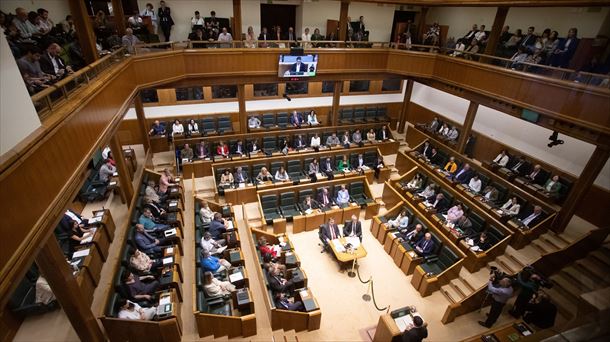After the American military strike over the Iranian nuclear facilities a week ago, the question increasingly arises as to how difficult the facilities were actually damaged. While US President Donald Trump speaks about the fact that the Iranian nuclear program is “completely destroyed” or at least “has been thrown back for decades”, the current assessments of secret services and the International Atomic Energy Agency (IAEA) have a much more differentiated image.
As the “Washington Post” reports, referring to four people who are familiar with the state of affair, the US evaluated intercepted communication between high -ranking Iranian government representatives. This was apparently surprising that the American attacks were less devastating than expected. Both the scope of the air strikes and the damage caused were lower than previously assumed.
Doubts about Trump’s success report
This assessment coincides with a provisional report from the Defense Intelligence Agency, according to which the nuclear program of the Tehran was delayed for only a few months. Trump’s government clearly rejected this presentation. Presidential spokeswoman Karoline Leavitt described the publication of the “Washington Post” as “embarrassing” and emphasized that the Iranian nuclear weapon program ended.
Only months thrown back instead of decades?
Rafael Grossi, general manager of the IAEA, is in contradiction with this assessment. In an interview with the American broadcaster CBS, he explained that Iran could start uranium enrichment again in a few months. The government in Tehran has so far rejected an inspection of the systems through the IAEA. Grossi was mainly concerned about the place of residence of the uranium shares enriched to 60 percent. It is unclear whether these have been destroyed by the attacks or still exist.
Despite the tensions, the Iranian UN ambassador Amir Saeid Iravani emphasized that there was no threat to IAEA inspectors or Grossi himself. Previously, however, the ultra-conservative Iranian newspaper “Kayhan” had called for the performance of the IAEA boss.
Access to systems refuses – Tehran remains stubborn
There is also something at diplomatic level: the vice minister of Iranian Foreign Affairs Majid Takht Ravanchi told the BBC that his country was ready for new discussions with the US under certain conditions. However, the condition is that Washington excludes future attacks on Iranian territory. A zero tolerance for uranium enrichment is not acceptable.
Iran’s UN ambassador also indicated: Under certain circumstances, Tehran could be willing to publish very enriched uranium abroad or to save the IAEA in Germany. However, people do not want to specify the basic right to uranium enrichment.
Rhetoric escalates: Threats for IAEA and Trump
At the same time, Tehran’s tone remains sharp opposite the US. Ajatollah Naser Makarem Shirazi warned in a religious explanation that threats for the spiritual head of Khameni in Islam can be punished. Trump had previously said that Khamenei was a “easy goal”, albeit “not right now”.
Trump had announced a new meeting between representatives from both countries at NATO top, but without details. Iran made it dependent on discussions about clear security guarantees of the United States.
Despite the still different assessments, the military blow to Iran remains an international controversial subject. It is open whether the attacks make a diplomatic solution easier or difficult in the long term.
Source: Krone
I am Ida Scott, a journalist and content author with a passion for uncovering the truth. I have been writing professionally for Today Times Live since 2020 and specialize in political news. My career began when I was just 17; I had already developed a knack for research and an eye for detail which made me stand out from my peers.



